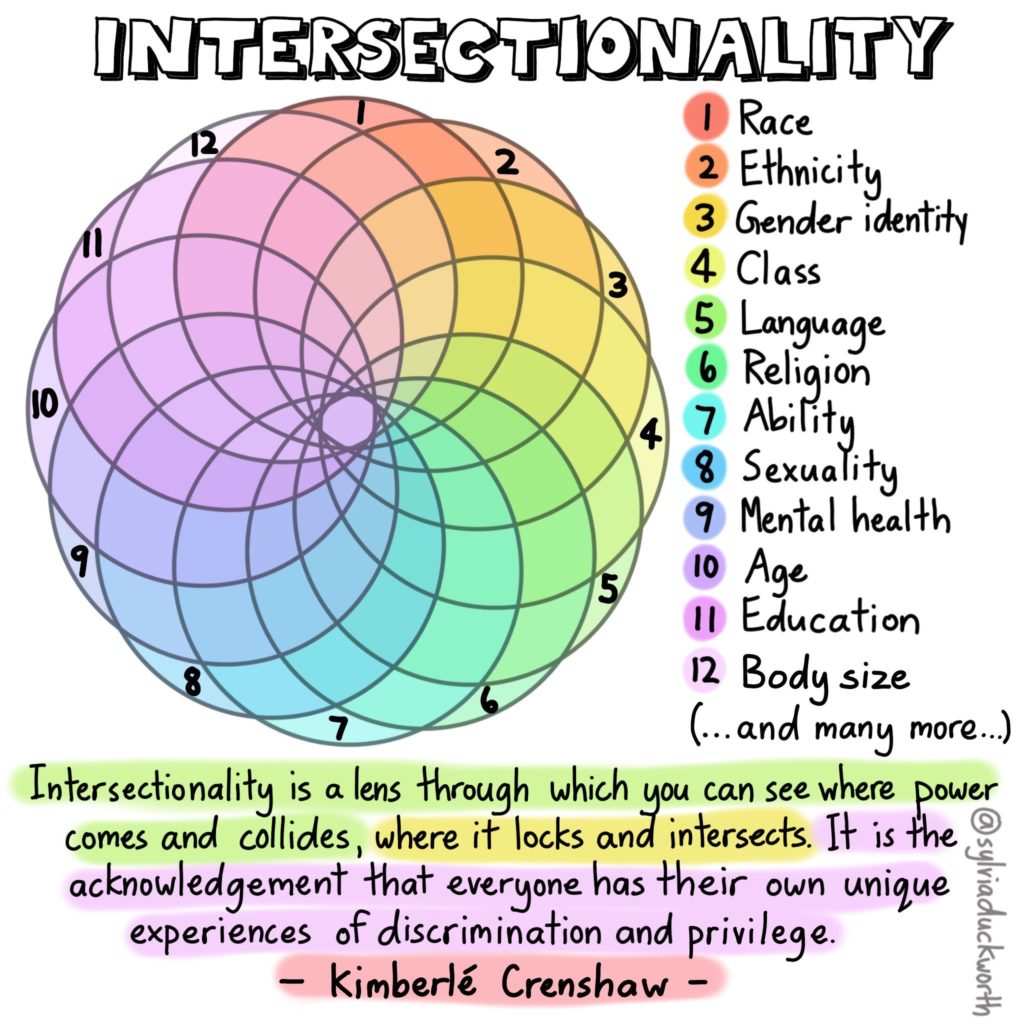An Intro to Intersectionality

March is Women’s History Month! This month celebrates the contributions, accomplishments, and strength of women around us. We will start off this month with a conversation about intersectionality, a term coined by Black feminist scholar Kimberlé Crenshaw in 1989.
What is Intersectionality?
Intersectionality is the idea that people’s overlapping identities influence the way they experience discrimination. It can sometimes expose the ways in which a person can simultaneously experience privilege and oppression. It recognizes that one’s identities don’t exist independently of each other. Intersectionality is a major component of antiracism.
What does Intersectional Antiracism look like in the real world?
Let’s consider the intersection of race and gender (in honor of Women’s History Month!). The table below shows the wages of women of different races compared to white men. Regardless of race, women tend to earn less than white men. You may notice, too, that non-white women earn even less than white women. In this case, women’s earnings are impacted by the intersection of their gender and their race. Taking into account the way that both race and gender contribute to these wage gaps is just one of many ways to practice antiracism with intersectionality.

I see the inequalities but what can I do about it?
Undoing racism, sexism, ableism, etc, is an ongoing journey. Real changes can begin in our interpersonal relationships, with our neighbors, families, even new acquaintances. We can use our privilege to uplift and advocate those in marginalized groups. We can listen and learn from people with different identities from our own. This includes being receptive to criticism – we may be oppressing others in ways we aren’t even conscious of.
This month, we will explore different ways that we can bring intersectionality to the forefront of our path to Undoing Racism.
Do you have identities that grant you simultaneous privilege and oppression? Share with us in a comment below!
-Your Friends at Undoing Racism


